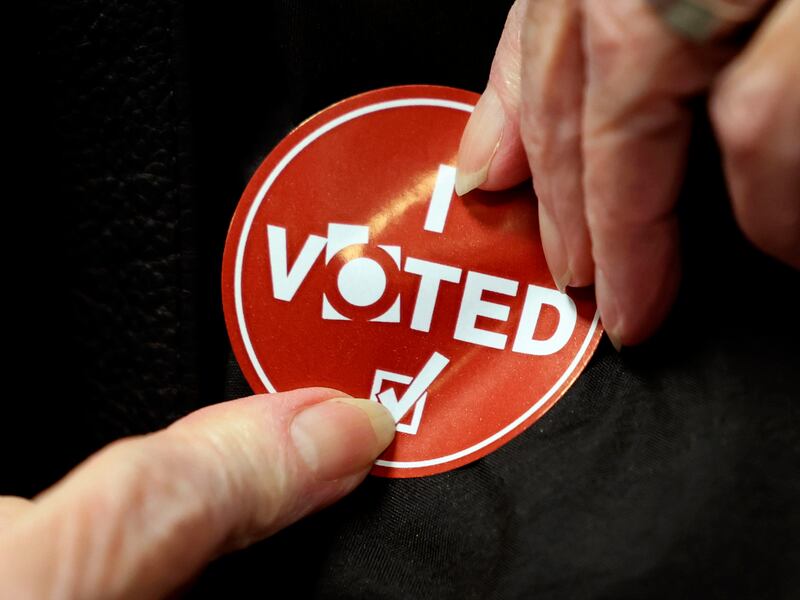“They will actually have to listen to us.”
That’s what Nathaniel Esubonteng, a junior at Science Park High School in Newark, told The New York Times after Newark lowered the voting age in school board elections to 16.
The move to lower the voting age below 18 is apparently picking up steam, with laws signed in places such as Takoma Park, Maryland, and Brattleboro, Vermont. And U.S. Rep. Grace Meng of New York has introduced federal legislation on the issue, explaining that 16- and 17-year-olds “continue to advocate for many crucial issues for which they are deeply passionate about. It is time to give them a voice in our democracy and reward their passion so that their voices are heard at the ballot box.”
According to recent polling, the vast majority of Americans think this is a bad idea. No surprise there: As education gets worse and kids seem to be getting less mature and more dependent on their parents for longer, it seems hard to justify the effort to give them more power. If we didn’t give 16-year-olds the vote when they were working full time and getting ready to leave their homes permanently, why would we do it now? But the whole idea of listening to young people more and letting them influence public policy has been embraced — particularly on the left — for years now.
Obviously such a move sounds positive — I believe the children are our future! — although this is more positive for Democrats than Republicans, since teens on the whole are more likely to vote for Democrats. But the desire to be guided by teenagers is evidence of a deeper issue that goes far beyond whether teenagers should vote. It has to do with what’s been called a “crisis of expertise.”
Americans — and particularly right-leaning ones — have become less trusting of academics, doctors, public health officials and other people who in the past were generally trusted. There is good reason for this, of course. The pandemic seemed to lay bare the politicization of many professional fields. And this, combined with a media landscape that encourages conspiratorial thinking, has some Americans thinking you can’t trust the so-called experts. They’ve all been co-opted.
But the left has its own crisis of expertise. The blind belief that young people — simply because they are young — are going to skillfully guide our communities, our country and our world has been spreading.
Take the obsession with Greta Thunberg, the Swedish activist who at the age of 8 became depressed about climate change and stopped speaking. At 15, she launched the first school climate strike. And at 16, she told members of the European Parliament: “Our house is falling apart and our leaders need to start acting accordingly, because at the moment they are not.” Thunberg, now 21, has been drowning in praise from adult acolytes who treat her as if she is some sort of child oracle.
But aside from predicting the end of the world and getting a lot of kids to skip school to protest climate change, what does Thunberg know about climate change? Her post-secondary education so far seems to be an honorary doctorate in theology. Yet it seems that we’re supposed to listen to her because she has personalized the problem. Which brings us to another aspect of this crisis of expertise on the left: the obsession with “lived experience.”
The idea that the people who have personally experienced poverty or discrimination or broken systems deserve to have more of a voice at the table is distorting a lot of our conversations. It is not that we should be unconcerned with what these folks have to say. Similarly, there is nothing wrong with hearing what students at schools have to say about their education.
But we are supposed to be looking at the costs and benefits of various policies for the public as a whole. You wouldn’t want to determine whether we should close all businesses or schools again because some people have COVID-19 right now. You wouldn’t want to defund all police because some officers have abused their powers. It’s not that we don’t want to find out about that abuse or fix it. But it’s wrong to extrapolate to the whole community or the whole country based on the experience of a few.
Earlier this week, the 31-year-old heiress to the BASF fortune, Marlene Engelhorn, announced that she would be giving away her inheritance by sending letters to 10,000 people in Austria and asking them for advice about how she should do so. (That number will eventually be whittled down to a committee of 50, who will convene and make decisions.)
People who want to serve on the Good Council for Redistribution, as she is calling it, can register online or by phone. “I am putting my assets at the disposal of these 50 people and placing my trust in them,” she said.
But why? I have no doubt that I would disagree with many of the recommendations made by the experts that Engelhorn likes, but putting her trust in people she doesn’t know, who bring no particular knowledge to the subject, seems like a performative gesture. Maybe our systems are broken, but the answer across the political spectrum seems to be to simply eschew knowledge and instead throw spaghetti at the wall and see what sticks.
Naomi Schaefer Riley is a senior fellow at the American Enterprise Institute, a Deseret News contributor and the author of “No Way to Treat a Child: How the Foster Care System, Family Courts, and Racial Activists Are Wrecking Young Lives,” among other books.


